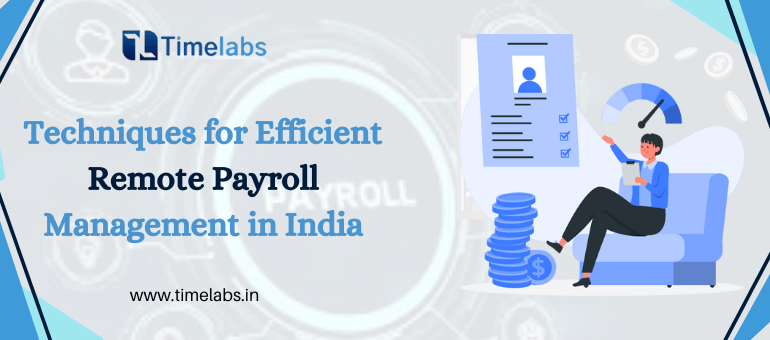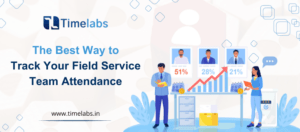Since the worldwide pandemic, many Indian businesses have adopted remote labor as the new standard. An organized approach to payroll management is crucial as businesses move toward a remote work environment. This piece will examine practical approaches of managing payroll remotely in India, emphasizing the value of communication and the usage of cloud-based payroll software. Employers may execute employee payments securely, effectively, and in accordance with local laws by utilizing technology and creating seamless communication channels.
India’s Growing Remote Work Industry
Approximately 97% of Indian workers indicated that they would like to go on working remotely even after the pandemic passes. This is based on data from the Buffer State of Remote Work report. The rising trend of remote work emphasizes how important it is for businesses to adjust and handle payroll in a remote environment. Although the shift may seem overwhelming, companies may overcome the difficulties of remote payroll management by adhering to a clear checklist.
Streamlining Communication in Cross-Functional Collaboration
Because it is the backbone of many departments and depends on information from numerous systems, effective payroll management is essential for any kind of business. Effective communication becomes even more important in a distant work environment. Cloud-based solutions for human capital management (HCM) are recommended for firms to facilitate smooth coordination between the finance and HR departments.
Cloud-based HCM systems make departmental communication easier. These cutting-edge platforms come with features like social HR platforms, fast connectivity from anywhere, and real-time status updates. Businesses may assure effective remote payroll administration and streamline cross-functional communication by leveraging technology.
Management of Leave and Attendance: Ensuring Accuracy
Precise tracking of leaves and attendance is necessary for efficient processing of payroll. Businesses in remote work environments need to collect information from several departments in order to guarantee that employee salaries are paid on time. Employees can work from anywhere with the flexibility and accessibility offered by cloud-based payroll software.
Features like geolocation attendance monitoring and web check-ins are significant additions to cloud-based HCM systems. These capabilities guarantee correct payroll processing by giving HR professionals real-time access to attendance data. Businesses can simplify leave and attendance management in a remote work setting by utilizing these solutions.
Must read: Top Priorities for HR Leaders in 2024
Self-Service Choices: Encouraging Staff Members
For many organizations in the digital age, self-service solutions are the way of the future. Payroll systems that are cloud-based enable employees to enter their own data, which relieves HR staff of some of their administrative duties. Workers can submit a variety of paperwork from any location, including investment evidence and claims for reimbursement.
By offering self-service choices, HR staff may concentrate on more strategic responsibilities while simultaneously empowering employees. Payroll accounting procedures can be streamlined and post-payroll activities can be automated with digital solutions. Payroll administration is sped up by this automation, which makes it particularly useful in remote work settings.
Ensuring Compliance and Security by Safeguarding Private Data
Businesses that use remote payroll management must put security and compliance first. Trust and secrecy must be upheld by protecting sensitive employee data, such as bank account information and wage information. Payroll software in India that is cloud-based provides strong security features to protect private data.
Businesses should consider features like data encryption, user access limits, and frequent security upgrades when choosing payroll software in India. Even in a remote work setting, these precautions guarantee that employee data is safe and secure. Prioritizing security and compliance helps companies foster a culture of trust while preserving the privacy of employee data.
Flexibility and Scalability: Changing with the Times
Scalability and flexibility are key components of an efficient remote payroll administration system that can adapt to evolving business requirements. Scalability is a benefit of cloud-based payroll software; it lets companies modify payroll procedures as their business expands. Easy employee addition and removal allows firms to simplify payroll administration and cut out pointless complications.
The ability to view payroll data from any location is another benefit of cloud-based payroll software. To process payments and answer any questions, HR staff members have secure access to payroll data whether they are working from the office or remotely. Regardless of the workplace, this adaptability guarantees payroll management continuity and efficiency.
Must read: Guide for Selecting a Saas-based Cloud Payroll Software
Analytics and Reporting: Using Data to Gain Understanding
Data is essential for streamlining payroll procedures and learning about patterns in employee pay. Cloud-based payroll software in India gives businesses the ability to make data-driven decisions by offering strong reporting and analytics features. Through the utilization of these technologies, companies can enhance their comprehension of payroll costs, pinpoint opportunities for financial reduction, and guarantee adherence to regional statutes.
Businesses can also create customized reports for stakeholders, such management or auditors, with payroll reporting and analytics. These reports offer insightful information on employee expenses, payroll performance, and compliance measures. Businesses can continuously enhance their remote payroll management procedures by utilizing data.
Connectivity with Different Systems: Simplifying Processes
In order to optimize productivity and simplify processes, companies want to think about combining their payroll software with other platforms. Data transfer can be automated and manual entry can be decreased by integration with accounting software, time and attendance management systems, and expenditure management systems.
Businesses may ensure accuracy across platforms and get rid of redundant data entry by integrating different systems. Real-time updates are made possible by this integration, guaranteeing that payroll data is current and available to the appropriate parties. In remote payroll management, streamlining processes through integration reduces errors, saves time, and boosts overall productivity.
Instruction and Assistance: Enabling Users
In order to optimize the advantages of remote payroll software, companies must ensure that users receive sufficient training and assistance. All users, whether they are HR staff members or employees, should get in-depth training on the features and functionalities of the software. Users who complete this course will be more capable of using the software efficiently, increasing output and lowering mistakes.
Businesses should also make sure that the payroll software vendor offers dependable customer assistance. Any technical problems or questions that may come up during payroll processing can be resolved with prompt and informed assistance. By investing in training and support, organizations may optimize their usage of remote payroll software and avoid disruptions in the payroll management process.
Must read: Recruitment Management System’s Significance in Organizing a Successful Recruitment Team
Continual Assessment and Enhancement: Adjusting to Changing Requirements
Because of the dynamic nature of remote employment, companies need to continually assess and enhance their remote payroll administration procedures. Remaining ahead of the curve requires routinely analyzing payroll procedures, getting user input, and following industry best practices.
Companies should keep a watchful eye out for changes in regional laws and make sure their remote payroll procedures stay lawful. Periodic audits and evaluations of payroll procedures can help firms find areas for development and adjust to evolving customer demands.
In summary
To sum up, managing remote payroll in India necessitates a methodical strategy that blends technology and efficient communication. Payroll software on the cloud provides companies with the means to conduct employee payments in a safe and effective manner while adhering to regional laws. Businesses can succeed in remote payroll management by placing a high priority on cross-functional collaboration, leave and attendance management, self-service options, compliance and security, scalability and flexibility, reporting and analytics, integration with other systems, training and support, and ongoing evaluation and improvement. By using effective tactics, companies can facilitate a smooth remote work environment for both workers and employers, guaranteeing prompt and precise processing of employee compensation.
The efficiency of remote payroll management can be further increased by integrating with Timelabs payroll software in India. Timelabs payroll software streamlines and lessens administrative load by automating payroll computations and guaranteeing employees are paid on time. Get a free quotation now to find out more about how Timelabs payroll software may help your company!



